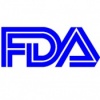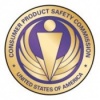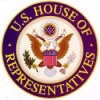Project News
-
 September 30, 2008
Nanotech and Synbio: Americans Don’t Know What’s Coming
A groundbreaking poll has found that almost half of U.S. adults have heard nothing about nanotechnology, and nearly nine in 10 Americans say they have heard just a little or nothing at all about the emerging field of synthetic biology. This new insight into limited public awareness of emerging technologies comes on the cusp of a major leadership change in the nation’s capital.
video
September 30, 2008
Nanotech and Synbio: Americans Don’t Know What’s Coming
A groundbreaking poll has found that almost half of U.S. adults have heard nothing about nanotechnology, and nearly nine in 10 Americans say they have heard just a little or nothing at all about the emerging field of synthetic biology. This new insight into limited public awareness of emerging technologies comes on the cusp of a major leadership change in the nation’s capital.
video
-
 September 9, 2008
Nanoscale Silver: No Silver Lining?
Widespread use of nanoscale silver will challenge regulatory agencies to balance important potential benefits against the possibility of significant environmental risk, highlighting the need to identify research priorities concerning this emerging technology, according to a new report by Dr. Samuel Luoma. Existing information about the impact of silver on the environment offers a starting point for some assessments of nanosilver, the report argues.
September 9, 2008
Nanoscale Silver: No Silver Lining?
Widespread use of nanoscale silver will challenge regulatory agencies to balance important potential benefits against the possibility of significant environmental risk, highlighting the need to identify research priorities concerning this emerging technology, according to a new report by Dr. Samuel Luoma. Existing information about the impact of silver on the environment offers a starting point for some assessments of nanosilver, the report argues.
-
 September 8, 2008
Nanotechnology and the FDA: Size Matters!
In July 2007 the Food & Drug Administration (FDA) issued its Nanotechnology Task Force Report. This report acknowledged that nanoscale materials potentially could be used in most product types regulated by the agency and that those materials present challenges complicated by the fact that properties relevant to product safety and effectiveness may change as size varies within the nanoscale.
September 8, 2008
Nanotechnology and the FDA: Size Matters!
In July 2007 the Food & Drug Administration (FDA) issued its Nanotechnology Task Force Report. This report acknowledged that nanoscale materials potentially could be used in most product types regulated by the agency and that those materials present challenges complicated by the fact that properties relevant to product safety and effectiveness may change as size varies within the nanoscale.
-
 August 21, 2008
Consumer Product Safety Commission Not Ready For Nanotech
The inability of the Consumer Product Safety Commission to carry out its mandate with respect to simple, low-tech products such as children’s jewelry and toy trains bodes poorly for its ability to oversee the safety of complex, high-tech products made using nanotechnology, according to a new report written by consumer product expert and Harvard lecturer E. Marla Felcher.
August 21, 2008
Consumer Product Safety Commission Not Ready For Nanotech
The inability of the Consumer Product Safety Commission to carry out its mandate with respect to simple, low-tech products such as children’s jewelry and toy trains bodes poorly for its ability to oversee the safety of complex, high-tech products made using nanotechnology, according to a new report written by consumer product expert and Harvard lecturer E. Marla Felcher.
-
 July 28, 2008
Local Officials Move Toward Monitoring Nanotechnologies
State and local officials have taken steps to begin monitoring the manufacture and storage of nanomaterials, a major step for a cutting-edge technology that has yet to be regulated by the federal government. Today, the Cambridge, MA Public Health Department recommended that the city take several steps to gain a better understanding of the nature and extent of local nanotechnology-related activities.
July 28, 2008
Local Officials Move Toward Monitoring Nanotechnologies
State and local officials have taken steps to begin monitoring the manufacture and storage of nanomaterials, a major step for a cutting-edge technology that has yet to be regulated by the federal government. Today, the Cambridge, MA Public Health Department recommended that the city take several steps to gain a better understanding of the nature and extent of local nanotechnology-related activities.
-
 July 23, 2008
Nanotech: A Regulatory Blueprint for the Next Administration
Nanotechnology will significantly change virtually every facet of the way we live. The next president has the opportunity to shape these changes and to ensure that nanotechnology’s benefits will be maximized and its risks identified and controlled. A new report by former EPA official J. Clarence (Terry) Davies lays out a clear roadmap for the next presidential administration and describes the immediate and longer term steps necessary to deal with the current shortcomings of nanotechnology oversight.
video
July 23, 2008
Nanotech: A Regulatory Blueprint for the Next Administration
Nanotechnology will significantly change virtually every facet of the way we live. The next president has the opportunity to shape these changes and to ensure that nanotechnology’s benefits will be maximized and its risks identified and controlled. A new report by former EPA official J. Clarence (Terry) Davies lays out a clear roadmap for the next presidential administration and describes the immediate and longer term steps necessary to deal with the current shortcomings of nanotechnology oversight.
video
-
 July 21, 2008
Nanotechnology: Learning From Past Mistakes
A new expert analysis in Nature Nanotechnology questions whether industry, government and scientists are successfully applying lessons learned from past technologies to ensure the safe and responsible development of emerging nanotechnologies. The study applies the 12 “late lessons from early warnings,” published by the European Environment Agency (EEA) in 2001, to the emerging field of nanotechnology.
July 21, 2008
Nanotechnology: Learning From Past Mistakes
A new expert analysis in Nature Nanotechnology questions whether industry, government and scientists are successfully applying lessons learned from past technologies to ensure the safe and responsible development of emerging nanotechnologies. The study applies the 12 “late lessons from early warnings,” published by the European Environment Agency (EEA) in 2001, to the emerging field of nanotechnology.
-
June 25, 2008
Use of Nanomaterials in Food Packaging Poses Regulatory Challenges
Engineered nanoscale materials (ENMs), which contain novel properties that offer potential benefits for use in food packaging, raise new safety evaluation challenges for regulators and industry, according to a report released today by the Project on Emerging Nanotechnologies (PEN) and the Grocery Manufacturers Association (GMA).
-
 May 28, 2008
Tuning in to Carbon Nanotube Safety
For several days last week, newspapers across the country and around the world reported on a new research study recently published in Nature Nanotechnology with headlines like “Nanotechnology cancer risk found” and “Nanotubes as deadly as asbestos.” This week National Public Radio’s “Science Friday” and “The Kojo Nnamdi Show” interviewed the Project’s chief science advisor Dr. Andrew Maynard, enabling listeners to get behind the headlines and pose questions directly to one of the study’s authors.
audio
May 28, 2008
Tuning in to Carbon Nanotube Safety
For several days last week, newspapers across the country and around the world reported on a new research study recently published in Nature Nanotechnology with headlines like “Nanotechnology cancer risk found” and “Nanotubes as deadly as asbestos.” This week National Public Radio’s “Science Friday” and “The Kojo Nnamdi Show” interviewed the Project’s chief science advisor Dr. Andrew Maynard, enabling listeners to get behind the headlines and pose questions directly to one of the study’s authors.
audio
-
 May 19, 2008
Carbon Nanotubes That Look Like Asbestos, Behave Like Asbestos
A major study published today in Nature Nanotechnology suggests some forms of carbon nanotubes could be as harmful as asbestos if inhaled in sufficient quantities. The study used established methods to see if specific types of nanotubes have the potential to cause mesothelioma — a cancer of the lung lining that can take 30-40 years to appear following exposure.
video
audio
May 19, 2008
Carbon Nanotubes That Look Like Asbestos, Behave Like Asbestos
A major study published today in Nature Nanotechnology suggests some forms of carbon nanotubes could be as harmful as asbestos if inhaled in sufficient quantities. The study used established methods to see if specific types of nanotubes have the potential to cause mesothelioma — a cancer of the lung lining that can take 30-40 years to appear following exposure.
video
audio
-
 May 14, 2008
Public Trust Is The ‘Dark Horse’ In Nanotechnology’s Future
Without an improved governance structure, the benefits of nanotechnology may never be realized because the public will not trust the cutting-edge technology. As part of major nanotechnology legislation, federal officials must bring together the best minds in the nation to develop a governance structure that will work with nanotechnology to ensure potential risks are minimized and that consumer confidence is maximized, said David Rejeski, director of the Project on Emerging Nanotechnologies, at an April 24 Senate science and technology subcommittee hearing.
video
May 14, 2008
Public Trust Is The ‘Dark Horse’ In Nanotechnology’s Future
Without an improved governance structure, the benefits of nanotechnology may never be realized because the public will not trust the cutting-edge technology. As part of major nanotechnology legislation, federal officials must bring together the best minds in the nation to develop a governance structure that will work with nanotechnology to ensure potential risks are minimized and that consumer confidence is maximized, said David Rejeski, director of the Project on Emerging Nanotechnologies, at an April 24 Senate science and technology subcommittee hearing.
video
-
 April 24, 2008
New Nanotech Products Hitting the Market at the Rate of 3-4 Per Week
New nanotechnology consumer products are coming on the market at the rate of three to four per week, a finding based on the latest update to the nanotechnology consumer product inventory maintained by the Project on Emerging Nanotechnologies (PEN). The number of consumer products using nanotechnology has grown from 212 to 609 since PEN launched the world’s first online inventory of manufacturer-identified nanotech goods in March 2006.
April 24, 2008
New Nanotech Products Hitting the Market at the Rate of 3-4 Per Week
New nanotechnology consumer products are coming on the market at the rate of three to four per week, a finding based on the latest update to the nanotechnology consumer product inventory maintained by the Project on Emerging Nanotechnologies (PEN). The number of consumer products using nanotechnology has grown from 212 to 609 since PEN launched the world’s first online inventory of manufacturer-identified nanotech goods in March 2006.
-
 April 19, 2008
Europe Spends Nearly Twice as Much as U.S. on Nanotech Risk Research
A new analysis by the Project on Emerging Nanotechnologies (PEN) indicates that European nations are investing nearly twice as much as the U.S. in research primarily aimed at addressing the potential risks of nanotechnology. The analysis also highlights a substantial over-inflation of the federal government’s nanotechnology risk-research investment figures for the U.S.
April 19, 2008
Europe Spends Nearly Twice as Much as U.S. on Nanotech Risk Research
A new analysis by the Project on Emerging Nanotechnologies (PEN) indicates that European nations are investing nearly twice as much as the U.S. in research primarily aimed at addressing the potential risks of nanotechnology. The analysis also highlights a substantial over-inflation of the federal government’s nanotechnology risk-research investment figures for the U.S.
-
 April 16, 2008
Limited Transparency In Federal Nanotech Research May Hamper Development
Today at a House Science and Technology Committee’s hearing, testimony from Dr. Andrew Maynard highlighted shortfalls in the current U.S. Government strategy. According to Dr. Maynard, without clear leadership and more transparency in federal risk research investment, the emergence of safe nanotechnologies will be a happy accident, rather than a foregone conclusion.
April 16, 2008
Limited Transparency In Federal Nanotech Research May Hamper Development
Today at a House Science and Technology Committee’s hearing, testimony from Dr. Andrew Maynard highlighted shortfalls in the current U.S. Government strategy. According to Dr. Maynard, without clear leadership and more transparency in federal risk research investment, the emergence of safe nanotechnologies will be a happy accident, rather than a foregone conclusion.
 September 30, 2008
Nanotech and Synbio: Americans Don’t Know What’s Coming
A groundbreaking poll has found that almost half of U.S. adults have heard nothing about nanotechnology, and nearly nine in 10 Americans say they have heard just a little or nothing at all about the emerging field of synthetic biology. This new insight into limited public awareness of emerging technologies comes on the cusp of a major leadership change in the nation’s capital.
video
September 30, 2008
Nanotech and Synbio: Americans Don’t Know What’s Coming
A groundbreaking poll has found that almost half of U.S. adults have heard nothing about nanotechnology, and nearly nine in 10 Americans say they have heard just a little or nothing at all about the emerging field of synthetic biology. This new insight into limited public awareness of emerging technologies comes on the cusp of a major leadership change in the nation’s capital.
video
 September 9, 2008
Nanoscale Silver: No Silver Lining?
Widespread use of nanoscale silver will challenge regulatory agencies to balance important potential benefits against the possibility of significant environmental risk, highlighting the need to identify research priorities concerning this emerging technology, according to a new report by Dr. Samuel Luoma. Existing information about the impact of silver on the environment offers a starting point for some assessments of nanosilver, the report argues.
September 9, 2008
Nanoscale Silver: No Silver Lining?
Widespread use of nanoscale silver will challenge regulatory agencies to balance important potential benefits against the possibility of significant environmental risk, highlighting the need to identify research priorities concerning this emerging technology, according to a new report by Dr. Samuel Luoma. Existing information about the impact of silver on the environment offers a starting point for some assessments of nanosilver, the report argues.
 September 8, 2008
Nanotechnology and the FDA: Size Matters!
In July 2007 the Food & Drug Administration (FDA) issued its Nanotechnology Task Force Report. This report acknowledged that nanoscale materials potentially could be used in most product types regulated by the agency and that those materials present challenges complicated by the fact that properties relevant to product safety and effectiveness may change as size varies within the nanoscale.
September 8, 2008
Nanotechnology and the FDA: Size Matters!
In July 2007 the Food & Drug Administration (FDA) issued its Nanotechnology Task Force Report. This report acknowledged that nanoscale materials potentially could be used in most product types regulated by the agency and that those materials present challenges complicated by the fact that properties relevant to product safety and effectiveness may change as size varies within the nanoscale.
 August 21, 2008
Consumer Product Safety Commission Not Ready For Nanotech
The inability of the Consumer Product Safety Commission to carry out its mandate with respect to simple, low-tech products such as children’s jewelry and toy trains bodes poorly for its ability to oversee the safety of complex, high-tech products made using nanotechnology, according to a new report written by consumer product expert and Harvard lecturer E. Marla Felcher.
August 21, 2008
Consumer Product Safety Commission Not Ready For Nanotech
The inability of the Consumer Product Safety Commission to carry out its mandate with respect to simple, low-tech products such as children’s jewelry and toy trains bodes poorly for its ability to oversee the safety of complex, high-tech products made using nanotechnology, according to a new report written by consumer product expert and Harvard lecturer E. Marla Felcher.
 July 28, 2008
Local Officials Move Toward Monitoring Nanotechnologies
State and local officials have taken steps to begin monitoring the manufacture and storage of nanomaterials, a major step for a cutting-edge technology that has yet to be regulated by the federal government. Today, the Cambridge, MA Public Health Department recommended that the city take several steps to gain a better understanding of the nature and extent of local nanotechnology-related activities.
July 28, 2008
Local Officials Move Toward Monitoring Nanotechnologies
State and local officials have taken steps to begin monitoring the manufacture and storage of nanomaterials, a major step for a cutting-edge technology that has yet to be regulated by the federal government. Today, the Cambridge, MA Public Health Department recommended that the city take several steps to gain a better understanding of the nature and extent of local nanotechnology-related activities.
 July 23, 2008
Nanotech: A Regulatory Blueprint for the Next Administration
Nanotechnology will significantly change virtually every facet of the way we live. The next president has the opportunity to shape these changes and to ensure that nanotechnology’s benefits will be maximized and its risks identified and controlled. A new report by former EPA official J. Clarence (Terry) Davies lays out a clear roadmap for the next presidential administration and describes the immediate and longer term steps necessary to deal with the current shortcomings of nanotechnology oversight.
video
July 23, 2008
Nanotech: A Regulatory Blueprint for the Next Administration
Nanotechnology will significantly change virtually every facet of the way we live. The next president has the opportunity to shape these changes and to ensure that nanotechnology’s benefits will be maximized and its risks identified and controlled. A new report by former EPA official J. Clarence (Terry) Davies lays out a clear roadmap for the next presidential administration and describes the immediate and longer term steps necessary to deal with the current shortcomings of nanotechnology oversight.
video
 July 21, 2008
Nanotechnology: Learning From Past Mistakes
A new expert analysis in Nature Nanotechnology questions whether industry, government and scientists are successfully applying lessons learned from past technologies to ensure the safe and responsible development of emerging nanotechnologies. The study applies the 12 “late lessons from early warnings,” published by the European Environment Agency (EEA) in 2001, to the emerging field of nanotechnology.
July 21, 2008
Nanotechnology: Learning From Past Mistakes
A new expert analysis in Nature Nanotechnology questions whether industry, government and scientists are successfully applying lessons learned from past technologies to ensure the safe and responsible development of emerging nanotechnologies. The study applies the 12 “late lessons from early warnings,” published by the European Environment Agency (EEA) in 2001, to the emerging field of nanotechnology.
 May 28, 2008
Tuning in to Carbon Nanotube Safety
For several days last week, newspapers across the country and around the world reported on a new research study recently published in Nature Nanotechnology with headlines like “Nanotechnology cancer risk found” and “Nanotubes as deadly as asbestos.” This week National Public Radio’s “Science Friday” and “The Kojo Nnamdi Show” interviewed the Project’s chief science advisor Dr. Andrew Maynard, enabling listeners to get behind the headlines and pose questions directly to one of the study’s authors.
audio
May 28, 2008
Tuning in to Carbon Nanotube Safety
For several days last week, newspapers across the country and around the world reported on a new research study recently published in Nature Nanotechnology with headlines like “Nanotechnology cancer risk found” and “Nanotubes as deadly as asbestos.” This week National Public Radio’s “Science Friday” and “The Kojo Nnamdi Show” interviewed the Project’s chief science advisor Dr. Andrew Maynard, enabling listeners to get behind the headlines and pose questions directly to one of the study’s authors.
audio
 May 19, 2008
Carbon Nanotubes That Look Like Asbestos, Behave Like Asbestos
A major study published today in Nature Nanotechnology suggests some forms of carbon nanotubes could be as harmful as asbestos if inhaled in sufficient quantities. The study used established methods to see if specific types of nanotubes have the potential to cause mesothelioma — a cancer of the lung lining that can take 30-40 years to appear following exposure.
video
audio
May 19, 2008
Carbon Nanotubes That Look Like Asbestos, Behave Like Asbestos
A major study published today in Nature Nanotechnology suggests some forms of carbon nanotubes could be as harmful as asbestos if inhaled in sufficient quantities. The study used established methods to see if specific types of nanotubes have the potential to cause mesothelioma — a cancer of the lung lining that can take 30-40 years to appear following exposure.
video
audio
 May 14, 2008
Public Trust Is The ‘Dark Horse’ In Nanotechnology’s Future
Without an improved governance structure, the benefits of nanotechnology may never be realized because the public will not trust the cutting-edge technology. As part of major nanotechnology legislation, federal officials must bring together the best minds in the nation to develop a governance structure that will work with nanotechnology to ensure potential risks are minimized and that consumer confidence is maximized, said David Rejeski, director of the Project on Emerging Nanotechnologies, at an April 24 Senate science and technology subcommittee hearing.
video
May 14, 2008
Public Trust Is The ‘Dark Horse’ In Nanotechnology’s Future
Without an improved governance structure, the benefits of nanotechnology may never be realized because the public will not trust the cutting-edge technology. As part of major nanotechnology legislation, federal officials must bring together the best minds in the nation to develop a governance structure that will work with nanotechnology to ensure potential risks are minimized and that consumer confidence is maximized, said David Rejeski, director of the Project on Emerging Nanotechnologies, at an April 24 Senate science and technology subcommittee hearing.
video
 April 24, 2008
New Nanotech Products Hitting the Market at the Rate of 3-4 Per Week
New nanotechnology consumer products are coming on the market at the rate of three to four per week, a finding based on the latest update to the nanotechnology consumer product inventory maintained by the Project on Emerging Nanotechnologies (PEN). The number of consumer products using nanotechnology has grown from 212 to 609 since PEN launched the world’s first online inventory of manufacturer-identified nanotech goods in March 2006.
April 24, 2008
New Nanotech Products Hitting the Market at the Rate of 3-4 Per Week
New nanotechnology consumer products are coming on the market at the rate of three to four per week, a finding based on the latest update to the nanotechnology consumer product inventory maintained by the Project on Emerging Nanotechnologies (PEN). The number of consumer products using nanotechnology has grown from 212 to 609 since PEN launched the world’s first online inventory of manufacturer-identified nanotech goods in March 2006.
 April 19, 2008
Europe Spends Nearly Twice as Much as U.S. on Nanotech Risk Research
A new analysis by the Project on Emerging Nanotechnologies (PEN) indicates that European nations are investing nearly twice as much as the U.S. in research primarily aimed at addressing the potential risks of nanotechnology. The analysis also highlights a substantial over-inflation of the federal government’s nanotechnology risk-research investment figures for the U.S.
April 19, 2008
Europe Spends Nearly Twice as Much as U.S. on Nanotech Risk Research
A new analysis by the Project on Emerging Nanotechnologies (PEN) indicates that European nations are investing nearly twice as much as the U.S. in research primarily aimed at addressing the potential risks of nanotechnology. The analysis also highlights a substantial over-inflation of the federal government’s nanotechnology risk-research investment figures for the U.S.
 April 16, 2008
Limited Transparency In Federal Nanotech Research May Hamper Development
Today at a House Science and Technology Committee’s hearing, testimony from Dr. Andrew Maynard highlighted shortfalls in the current U.S. Government strategy. According to Dr. Maynard, without clear leadership and more transparency in federal risk research investment, the emergence of safe nanotechnologies will be a happy accident, rather than a foregone conclusion.
April 16, 2008
Limited Transparency In Federal Nanotech Research May Hamper Development
Today at a House Science and Technology Committee’s hearing, testimony from Dr. Andrew Maynard highlighted shortfalls in the current U.S. Government strategy. According to Dr. Maynard, without clear leadership and more transparency in federal risk research investment, the emergence of safe nanotechnologies will be a happy accident, rather than a foregone conclusion.
